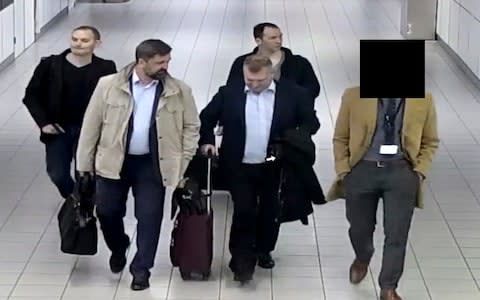Russia to disconnect its internet from rest of the world – temporarily
Providers are planning to temporarily cut the Russian internet off from the world wide web amid attempts to increase government control of information flows.
A group of major private and state telecoms led by Natalya Kaspersky, co-founder of the Kaspersky Lab antivirus maker which was banned by the US government, have decided to conduct the test to disconnect “Runet” from the rest of the internet sometime before April 1.
That's the deadline for amendments to “sovereign internet” legislation that ostensibly will allow Russia to protect itself from foreign aggression in the digital sphere.
In particular, lawmakers are worried that Western accusations of Russian hacking could lead to retaliatory cyberattacks and are trying to develop a way to isolate the Russian internet on command.

The bill would require telecoms to be able to redirect all traffic through routing points controlled by the Russian state, giving it a brake on the flow of information to networks abroad.
But experts have said developing such sweeping capabilities, if not impossible, would at the very least be extremely expensive and could lead to major disruptions in the functioning of the internet.
There's also the threat of censorship, as the system will be monitored by the state communications oversight agency Roskomnadzor, which has become known for banning both extremist speech and criticism of the Kremlin. It will be able to filter out foreign content it doesn't like.
Last week, Google reportedly agreed to receive lists of sites banned by Roskomnadzor every day and to block some of them. So far, it's blocked three-fourths of the sites forbidden in Russia.
The state audit chamber opposed the sovereign internet legislation last week on the grounds that it would lead to a rise in the cost of goods and services. Budget expenditures will be required to help telecoms implement the technology and pay for additional staff at Roskomnadzor.
Human rights group Agora called the bill a “serious threat to internet freedom” in a recent report. But the cabinet of ministers and Vladimir Putin's internet adviser have spoken out in favour of the law. The president famously once called the internet a “CIA project”.
Moscow is seen to be moving toward a model similar to the “great firewall” of China, where certain keywords are blocked and users can't connect to blacklisted sites including Facebook.
Western countries have threatened sanctions against Russia over cyberattacks.

Moscow has been accused in recent years of hacking the Democratic National Committee in the United States, a Novichok testing lab in the Netherlands and the World Anti-Doping Agency and International Olympic Committee.
US secretary of state Mike Pompeo traveled to Hungary on Monday in a bid to counter Russian and Chinese influence in Europe. In his meeting with prime minister Viktor Orban, who has a warm relationship with Vladimir Putin, he was expected to warn against the growing reliance on Russian energy there. Speaking in Budapest, Mr Pompeo said Washington wanted to re-engage with the region.
The Russian government has been tightening its grip over the internet since social media facilitated huge protests against Mr Putin in 2011-13. With no access to state television, opposition leader Alexei Navalny has been able to reach millions of people with videos about corruption by top officials.
In response, the authorities have established an extensive blacklist of banned websites and required popular bloggers to register with the state. Young Russians have faced fines and jail time for social media posts ridiculing the Kremlin or Orthodox Church, and Roskomnadzor has in vain attempted to block the popular encrypted messaging service Telegram.
Under a law requiring citizens' data to be stored in-country, Moscow has also been trying to force internet giants like Facebook and Twitter to relocate servers to Russia, where its intelligence agencies would have access to them, and blocked the business networking site LinkedIn.
Sign up for your essential, twice-daily briefing from The Telegraph with our free Front Page newsletter.

 Yahoo Finance
Yahoo Finance 